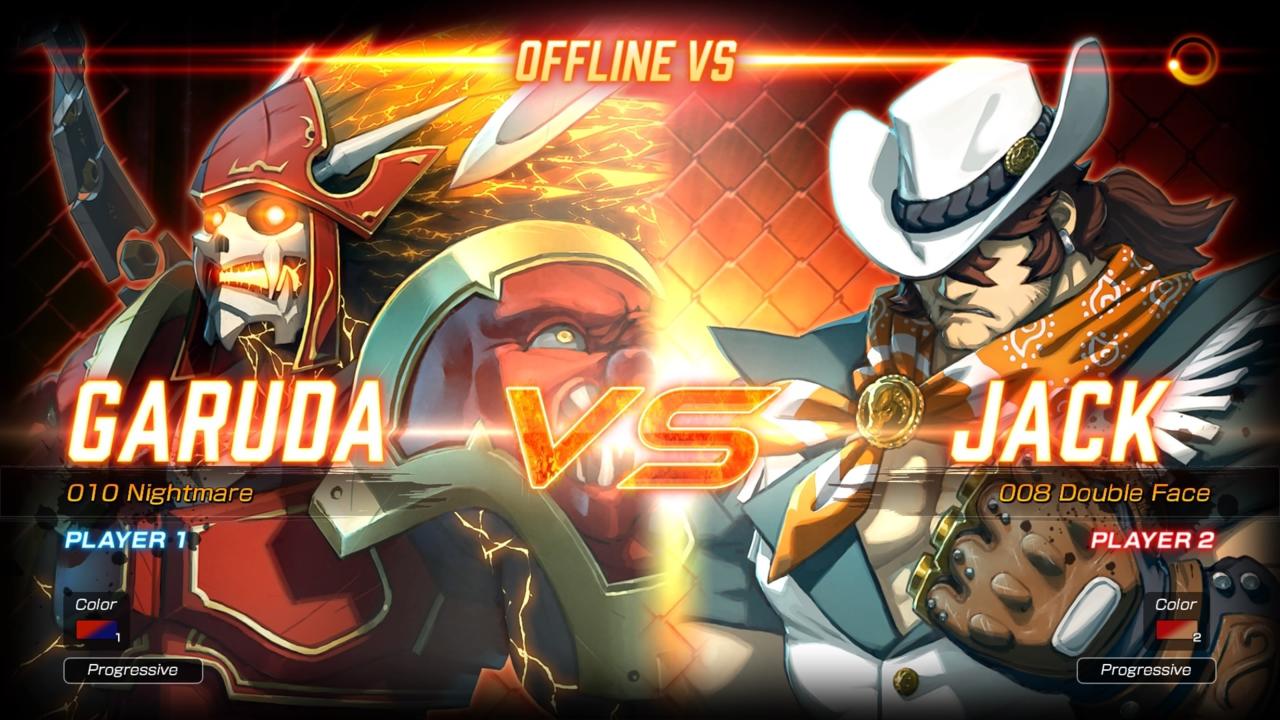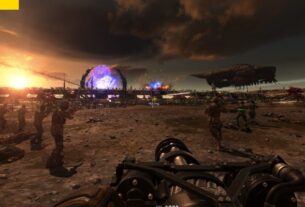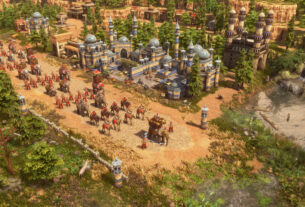
Layers upon layers.
Fighting EX Layer is a one-one-one fighting game that’s built for a very specific audience. There’s no tutorial, no story mode, not even a basic arcade mode yet. However, the resulting game is built purely on competitive fighting with focused efforts on making the brawling as satisfying and engaging as possible. And to that end, developer Arika succeeded spectacularly.
Fighting EX Layer comes from Arika, the developer behind the Street Fighter EX series for the PlayStation 1 and 2, and features many of the original characters created for those games. Faces like Blair Dame, Doctrine Dark, and the fan favorite Skullomania are all here to deliver epic beatdowns while looking better than ever. If you enjoyed the SFEX games, playing EX Layer feels like seeing old friends again after a very long time–though you don’t need to remember the roster from a 1996 game to have fun with its colorful cast of fighters.
Of course, characters in a fighting game are just empty shells without a solid fighting engine to back them up, and EX Layer delivers that. The six-button fighter incorporates throws, dashes, a special overhead attack, varied special moves and super attacks, and basic attack chain combos (executed by pressing light-to-strong attack buttons in succession.) Movement, particularly dashing, feels swift and responsive even for slower characters, and basic attacks are satisfying thanks to a combination of well-designed animations and delightful auditory and visual flourishes.
This solid gameplay provides the foundation for EX Layer’s two defining mechanics. The first is the ability to chain attacks into special and super moves, which is achieved by cancelling mid-animation into a stronger skill. While many fighting games do this, EX Layer is notable for how smooth and free-flowing the cancelling feels; timing windows tend to be generous, and there are only a few restrictions on what attacks can chain into others, leading to some spectacular combos involving multiple special and super skills fired off in rapid succession. Allen’s Justice Fist special move has a tremendous recovery time that makes it difficult to utilize on its own, for example, but by cancelling it into a super move, it becomes a lot more versatile. The cancelling, combined with dash-oriented movement, makes for a game that’s very focused on aggressive, in-your-face tactics.
The other major element that sets EX Layer apart is the Gougi, pre-constructed decks of five special skills–either active or passive–that activate when certain conditions are met over the course of the fight. Effects can range from an increase in movement speed after a certain amount of time has passed to special properties attached to your attacks after you land hits with them a certain number of times. There are currently 15 Gougi decks available in the “standard” version and five available in the lower-priced “light” version, with more potentially on the way as DLC.
The skills that activate in each Gougi are designed to pair well with each other. The Infinity deck, for example, contains three boosts to building super meter and two other skills that make use of this extra meter gain, allowing you to play by building and spending meter very quickly. Other decks can change basics of the game in some unique and challenging ways; the Stealth Raptor deck transforms dashes into short hops, while Sky Dancer gives you a homing jump that will let you land near your opponent from any distance. This results in some Gougi decks being easier to use than others, but the more technical decks offer some intriguing potential to those willing to put in the time and effort to work with them.
It’s in the thick of battle when you really see how much Gougi can impact a match. Many of the effects don’t activate until a couple of rounds in, meaning that you’ll gain access to new skills and abilities throughout the entire match. This challenges you to not only change up your fighting style and take full advantage of your unlocked skills as the battle wages on, but also to adapt to your opponent’s ever-evolving set of skills. Due to the aggressive nature of its combat and the Gougi boosts, the playing field in EX Layer is practically always changing in a fun, organic way.

The fact that Gougi and attack cancelling are so versatile makes for a game that feels designed expressly for people who savor the technical aspects of fighting games–the kind of folks who will gladly spend hours upon hours in Training Mode just experimenting to find cool and interesting techniques. With its lack of single-player modes (besides a versus-CPU Kumite mode buried under menus), Fighting EX Layer is expressly targeting the hardcore competitor. While Arika has said that there are no plans for expanding the single-player element of the game anytime soon beyond an eventual arcade mode, it’s showing that it’s dedicated to maintaining the health of the community. Unfortunately, for such a competition-focused game, the netcode can be spotty, leading to some noticeable lag and occasionally frustrating matches if you don’t have anyone to fight against locally. If you keep to high-bar connections, things usually go a lot more smoothly.
On a pure gameplay level, Fighting EX Layer is an absolute treat. What it lacks in bells and whistles it delivers in pure, fun combat. This is a game made for the sort of people who will spend hours perfecting an impractical, extremely-precise combo in training mode simply for the satisfaction of having done it. If that describes you, then Fighting EX Layer will be worth everything you put into it.



